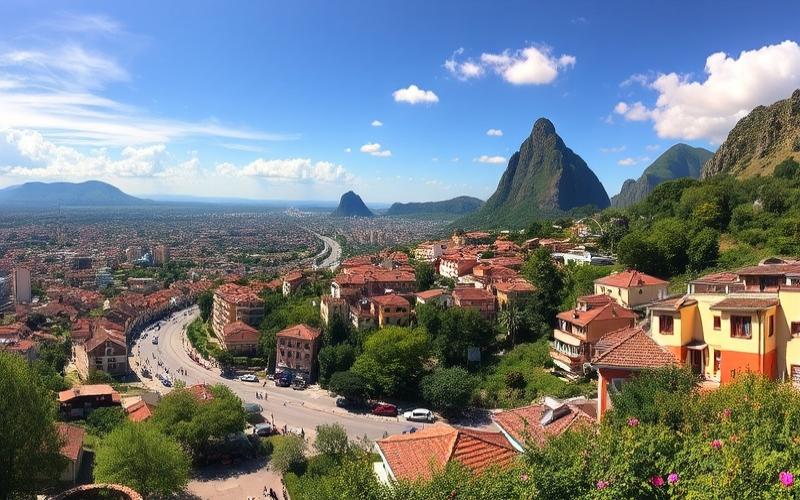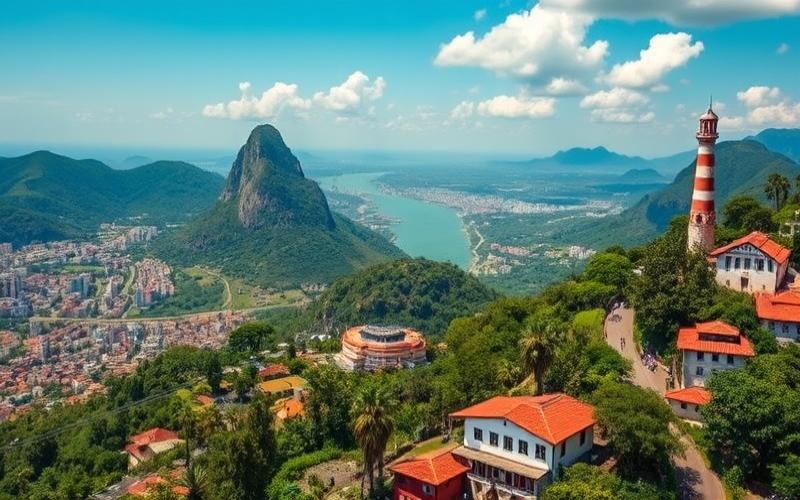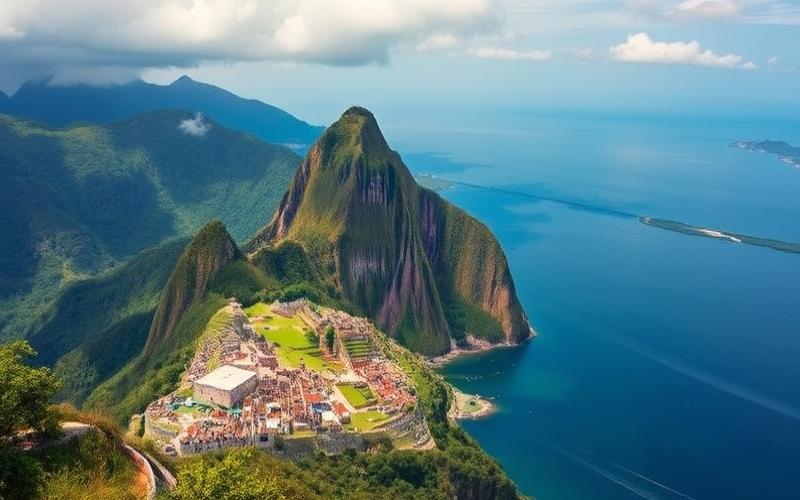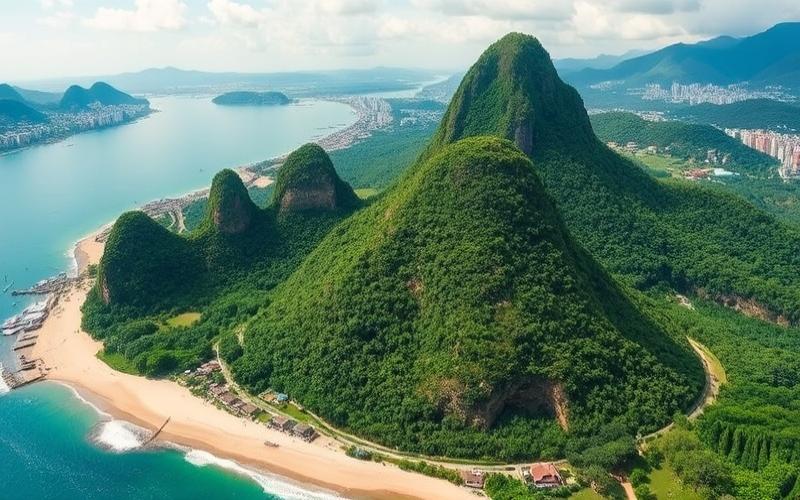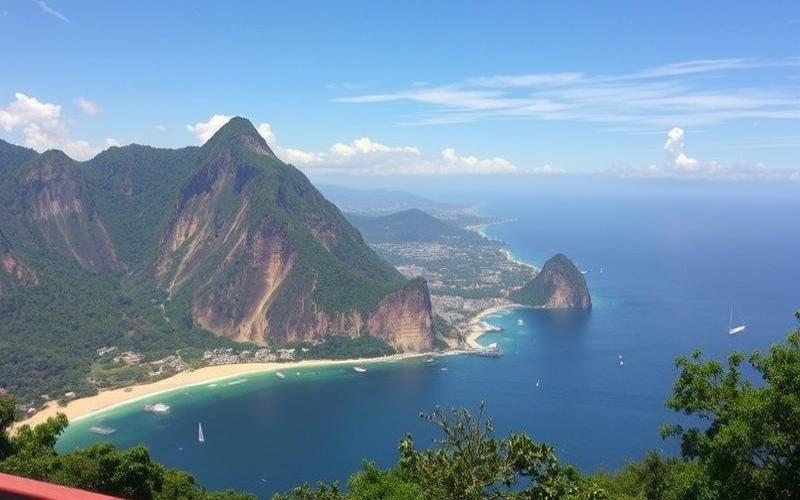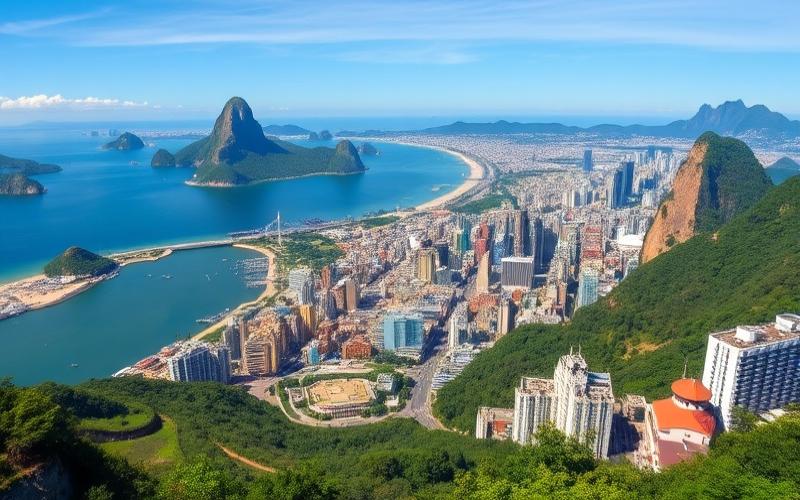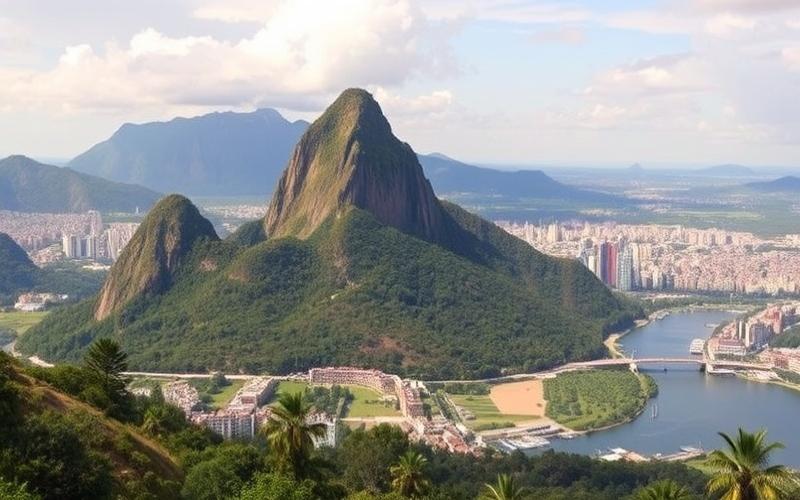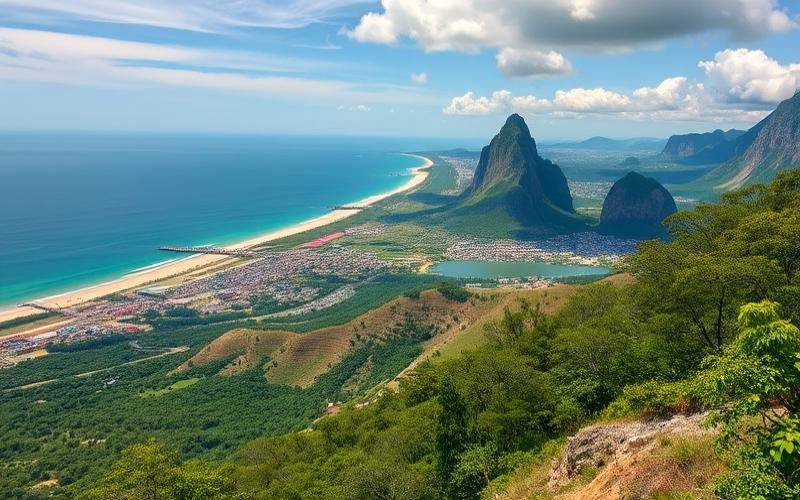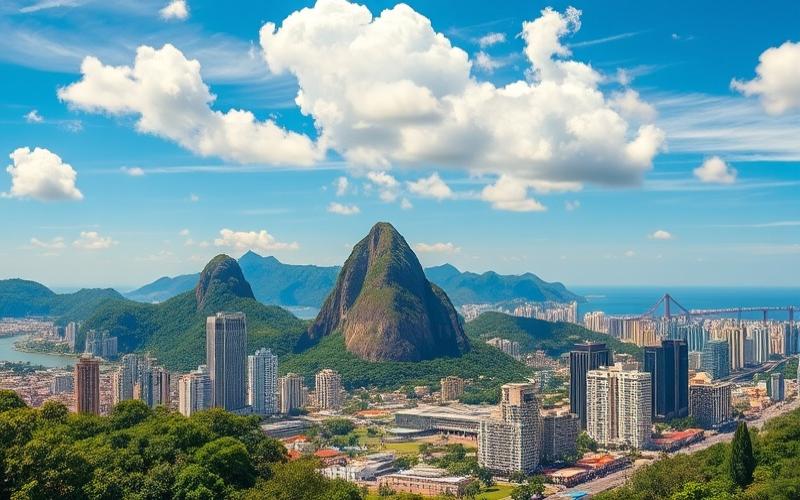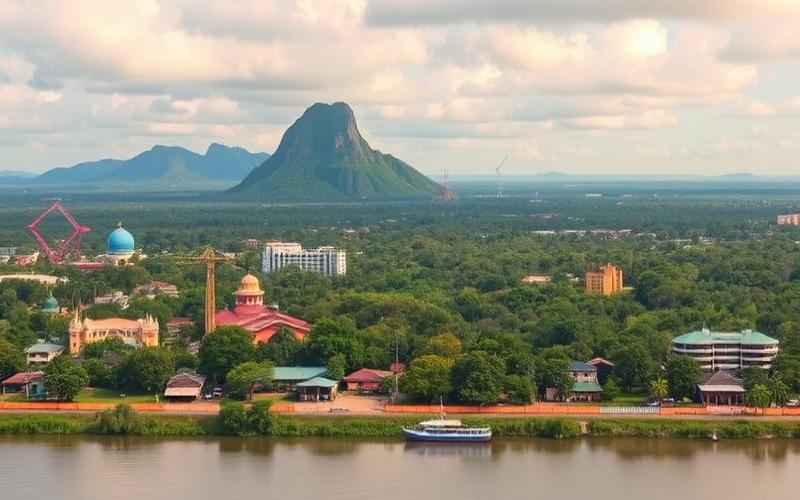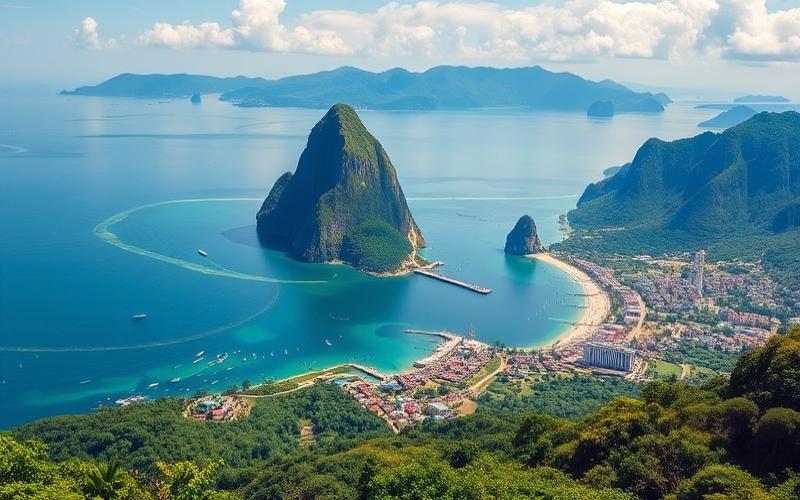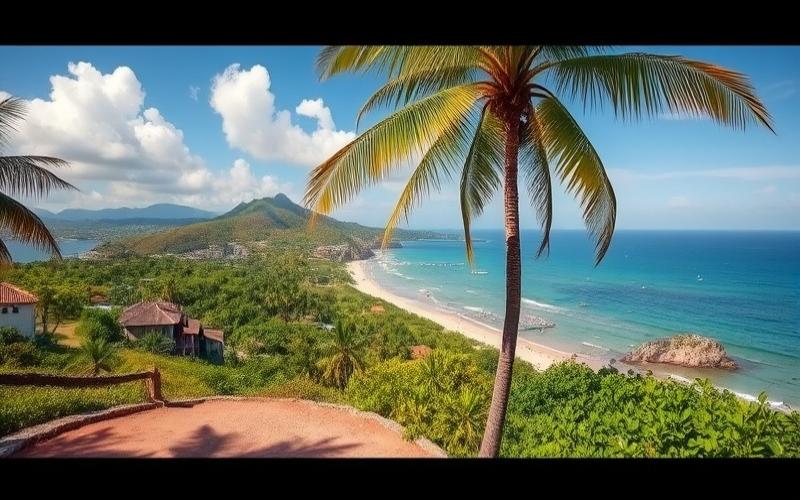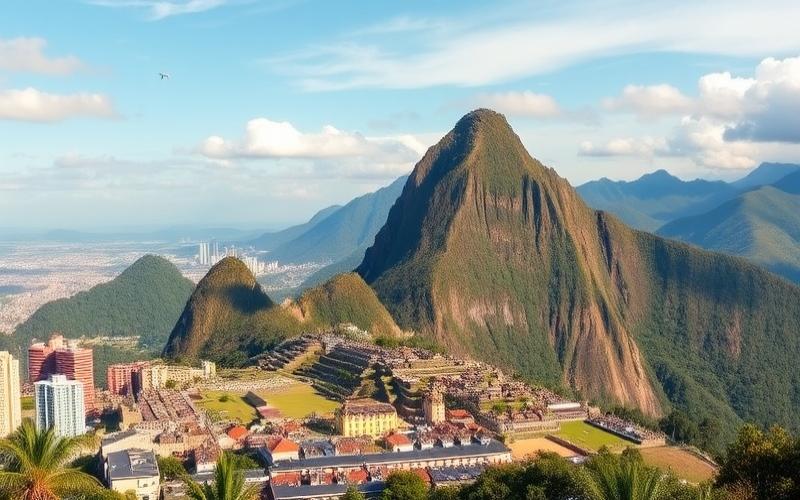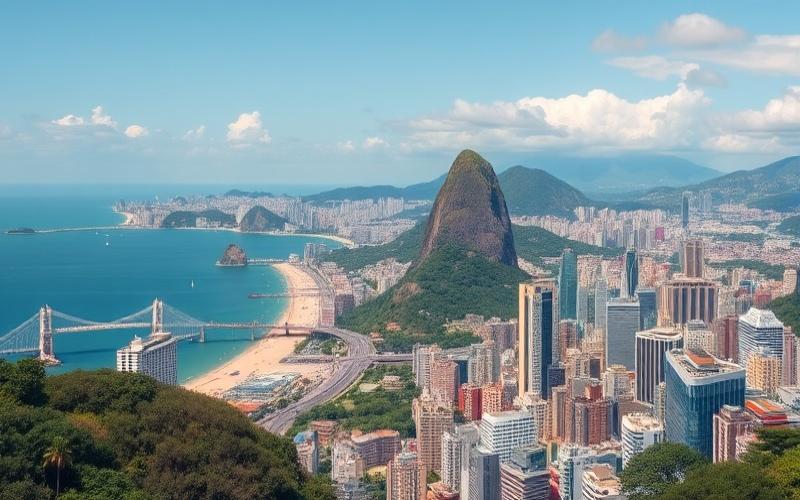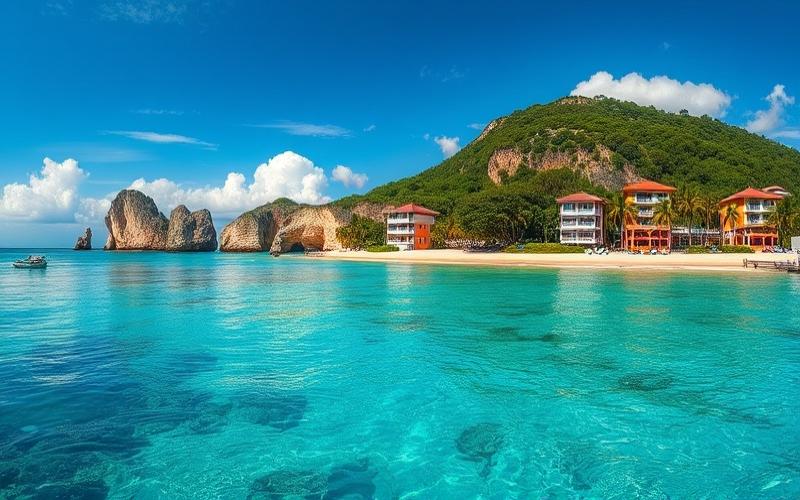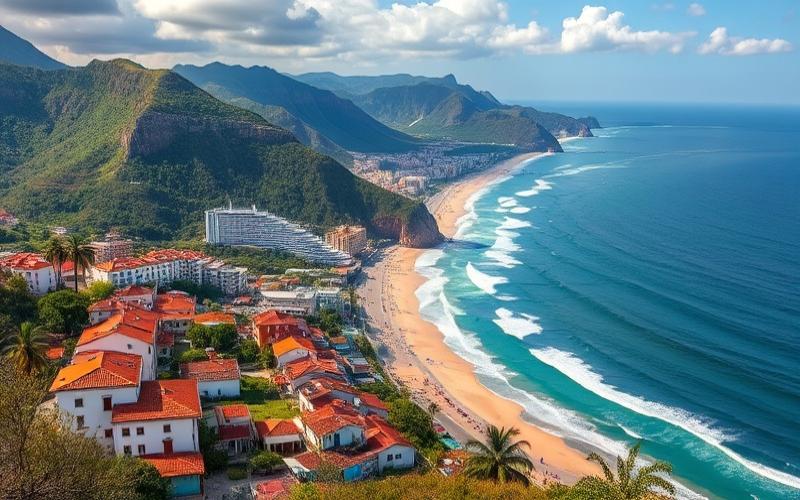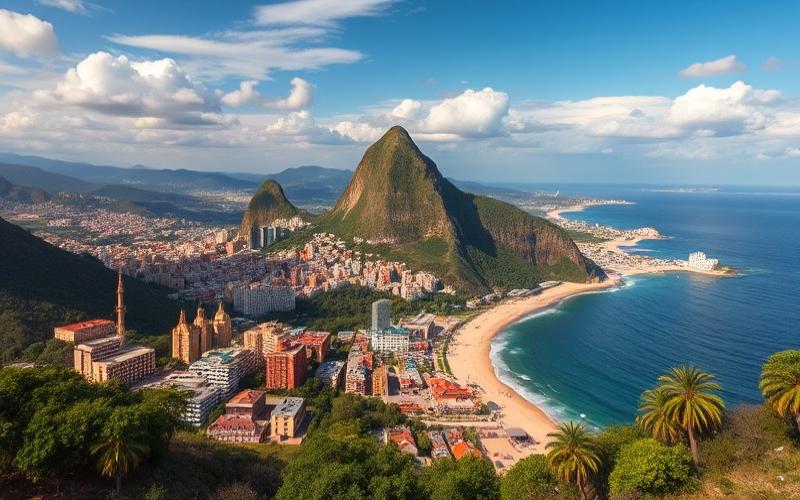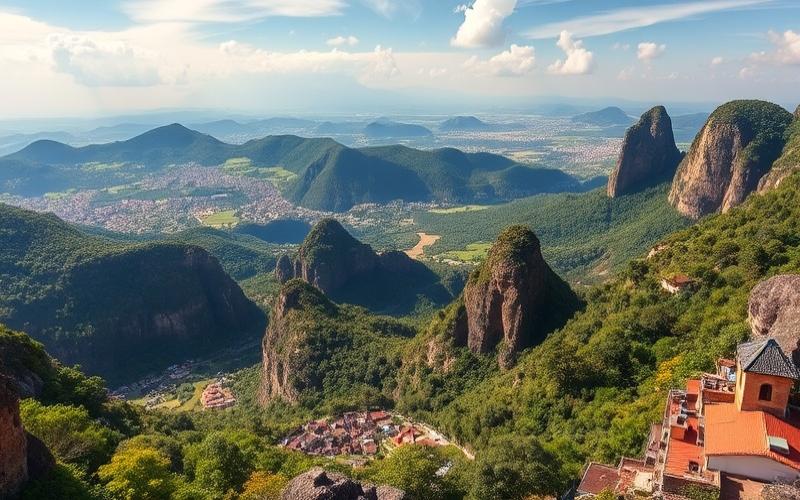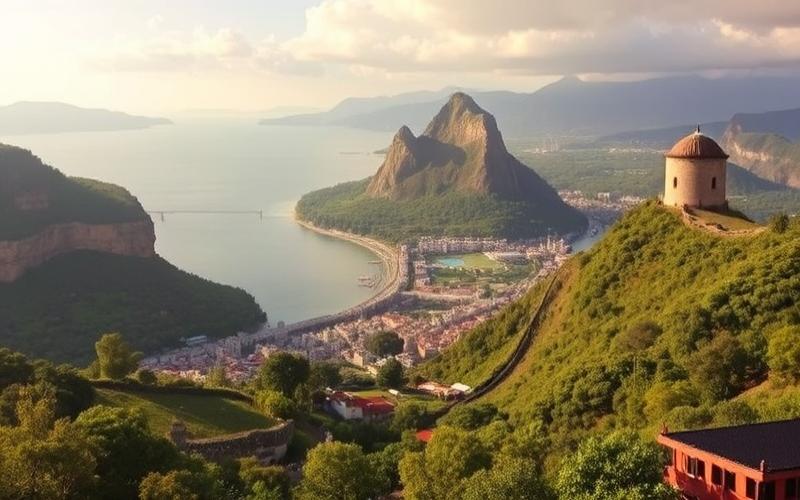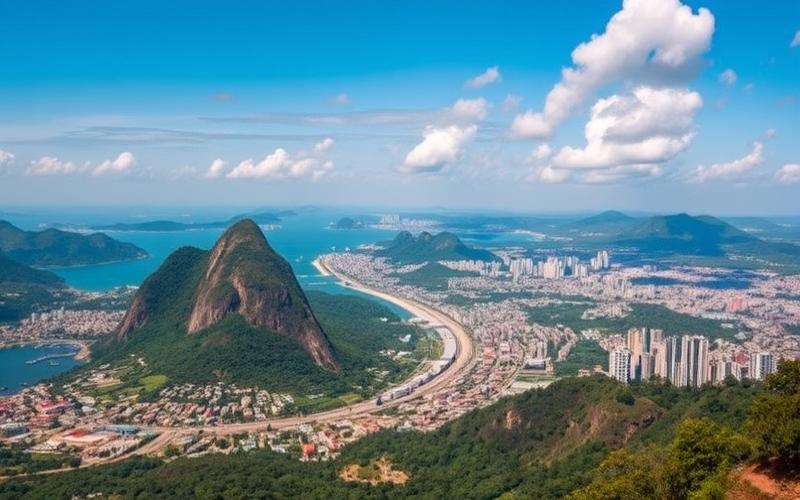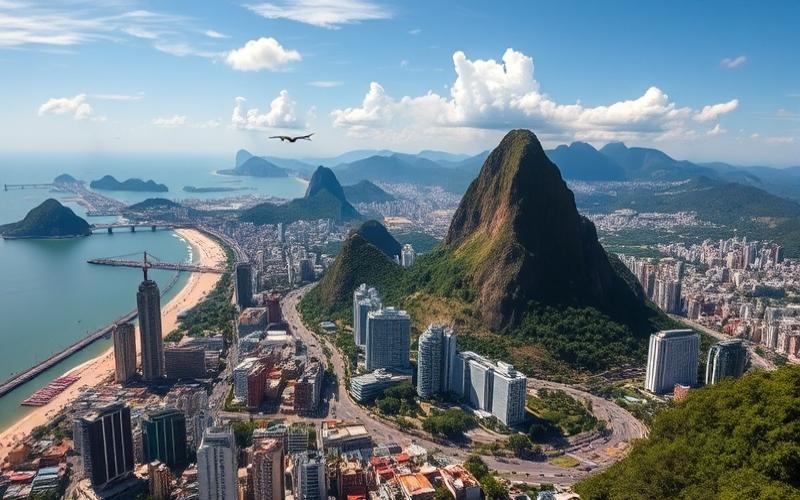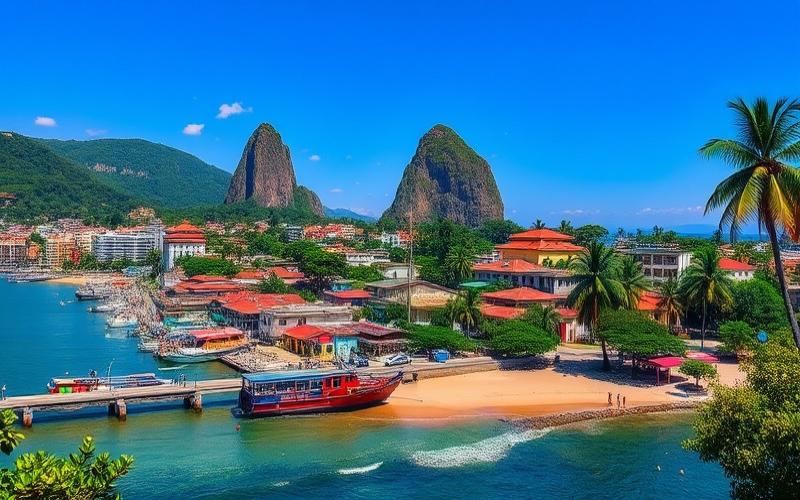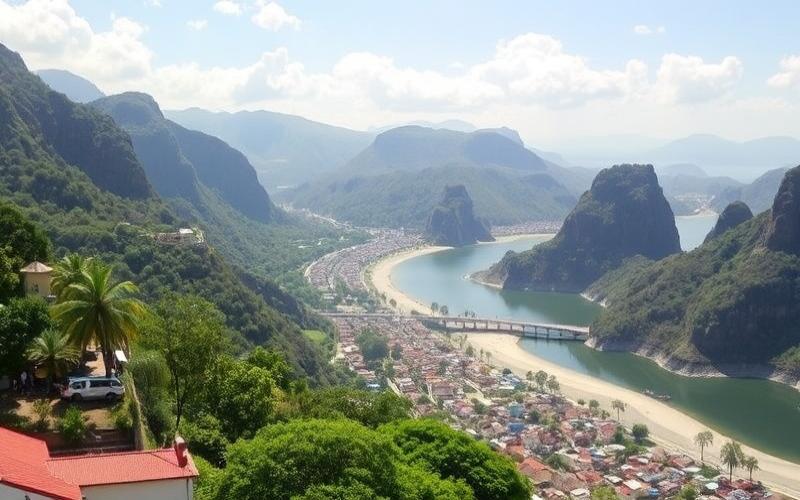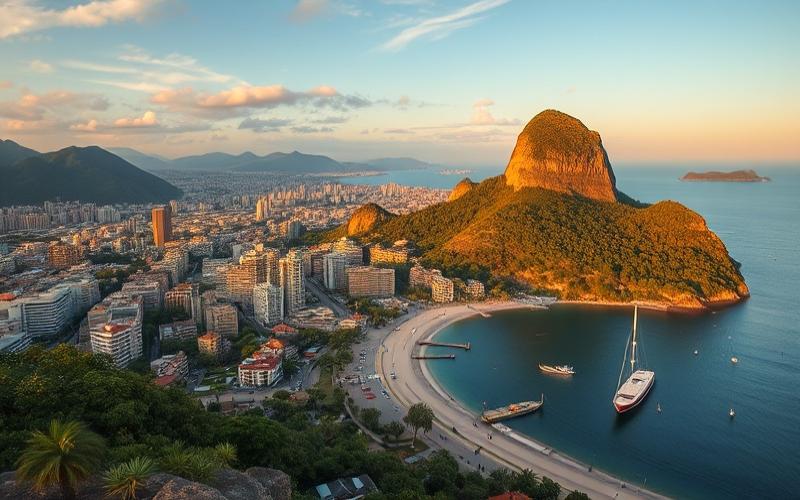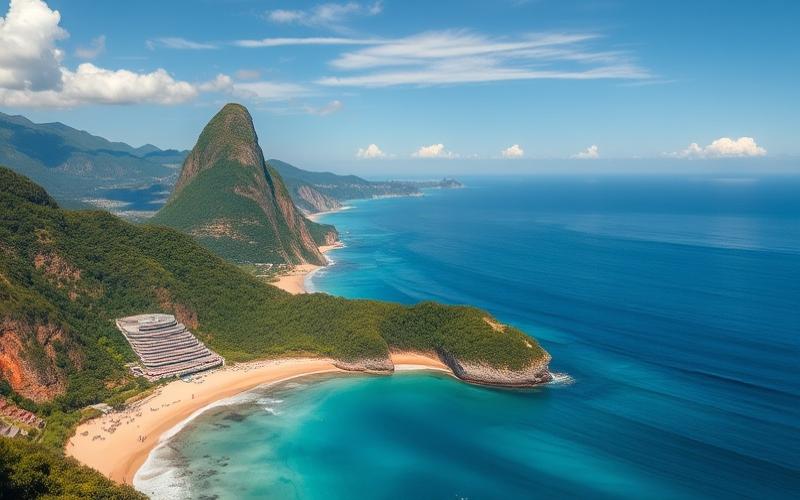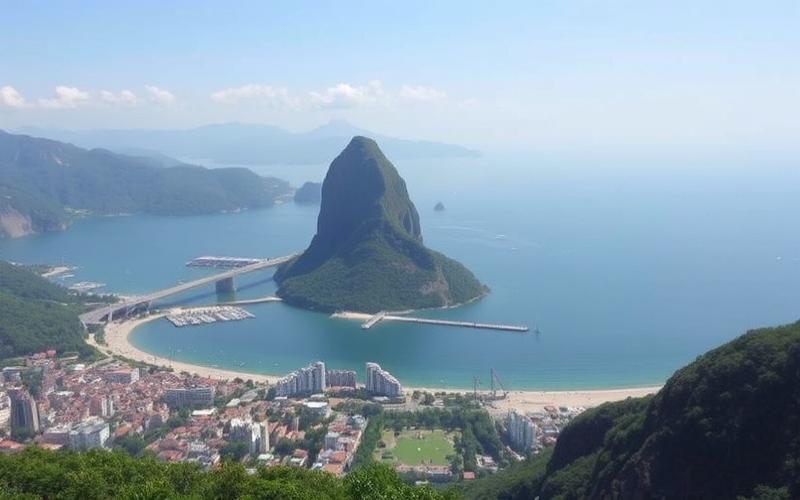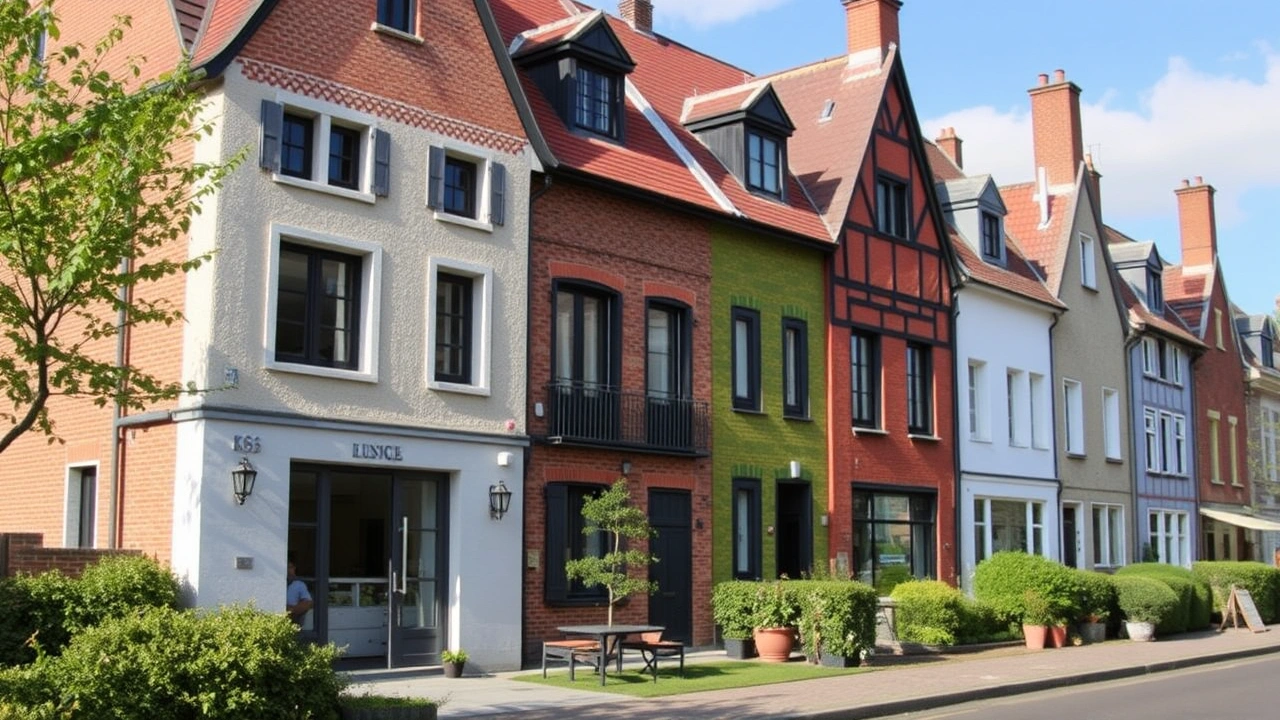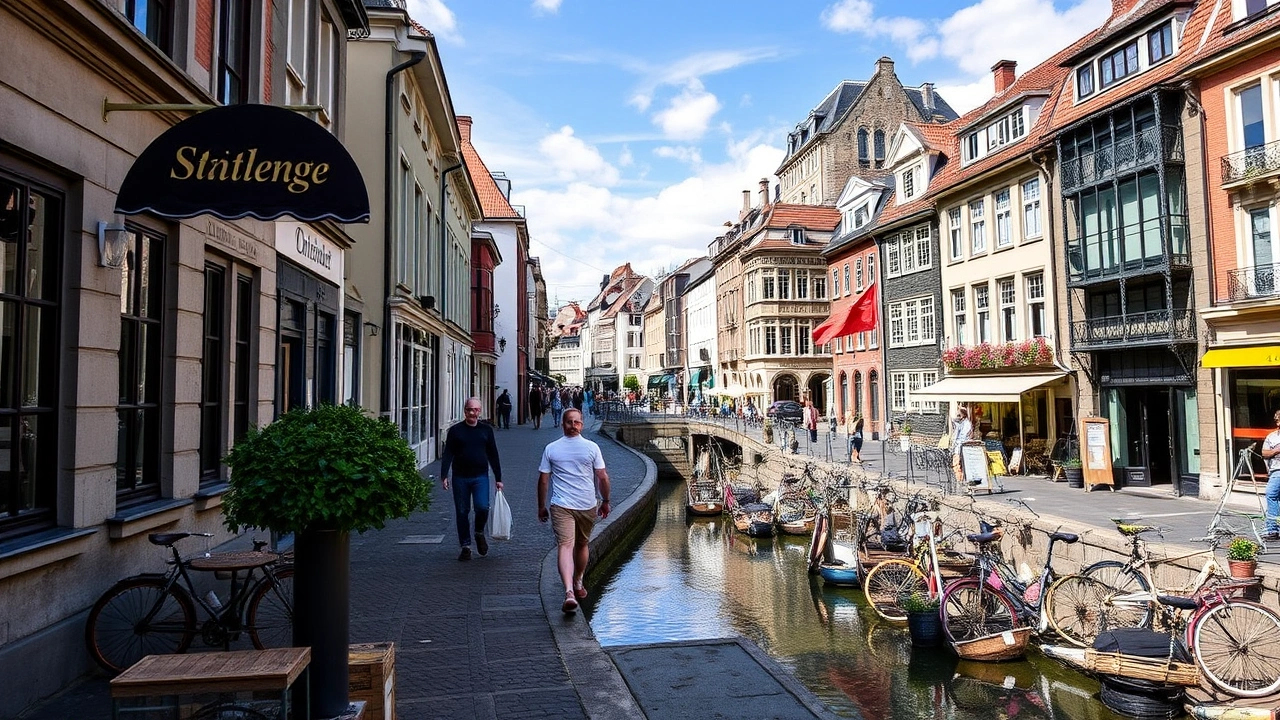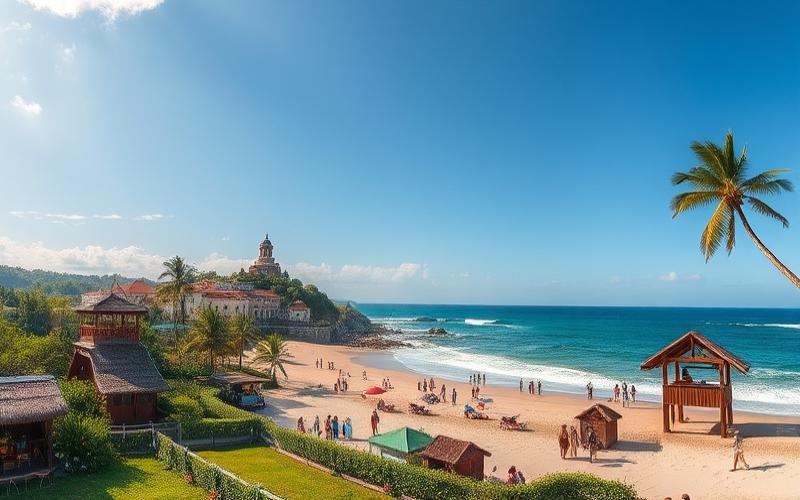
 Published on and written by Cyril Jarnias
Published on and written by Cyril Jarnias
With its endless beaches, vibrant culture, and sunny climate, Brazil is attracting more and more senior expatriates
In search of a retirement filled with comfort and discovery, Brazil offers an idyllic living environment for senior expatriates. However, choosing the ideal location to settle proves crucial for maximizing quality of life and investments.
Guide to the best regions of the country
This article guides you through the best regions of the country, each offering unique opportunities, while considering economic factors, security, and social life.
Whether you’re drawn to the bustling energy of São Paulo or the tranquility of Florianópolis, we explore the options to help you make an informed choice for your new life under the sun.
Good to Know:
Brazil offers specific visas for retirees, facilitating the relocation of senior expatriates.
Brazil Retirement: A Haven for Seniors
The main Brazilian destinations favored by seniors include Rio de Janeiro, Florianópolis, and Natal, attractive for their combination of beaches, culture, and services, with a cost of living generally lower than many Western countries. Brazil also appeals with its tropical climate and the warmth of its people, offering an environment conducive to an active and social retirement.
Rio de Janeiro — Key Strengths
- Climate: tropical, hot summers and mild winters.
- Cost of Living: affordable compared to North America and Europe, but some neighborhoods like Ipanema are more expensive.
- Healthcare: access to international-level hospitals and clinics, with a wide private offering.
- Culture: iconic beaches, museums, music, cuisine, and major events.
Florianópolis — Key Strengths
- Climate: mild subtropical, hot summers and cooler winters than the Northeast.
- Cost of Living: reasonable, higher near tourist areas; 42 beaches and varied lifestyles depending on the neighborhood.
- Healthcare: strong hospital offering in the capital of Santa Catarina, private services appreciated by expatriates.
- Environment: natural-urban island, surfing, hiking, and quiet neighborhoods like Jurerê for a peaceful daily life.
Natal — Key Strengths
- Climate: sunny year-round, “city of the sun,” beach atmosphere and coastal dunes.
- Cost of Living: often lower than major metropolises; housing and daily expenses attractive for fixed pensions.
- Culture and Leisure: festivals, crafts, local music; relaxed community life of the Northeast.
- Real Estate: affordable options and investment potential on the northeastern coast.
Reference List on Cost of Living and Real Estate
- Cost of Living: overall lower than in many Western countries; note the disparities between premium neighborhoods (e.g., Ipanema) and standard residential areas.
- Real Estate:
- Rio: wide price dispersion depending on coastal or more central neighborhoods.
- Florianópolis: mixed market (houses, apartments, serviced residences); attractiveness around beaches like Jurerê or Joaquina.
- Natal: seaside apartments and houses often more affordable than in the South and Southeast.
Healthcare Accessible to Senior Expatriates
Major cities (Rio, Floripa) with renowned private hospitals; numerous specialized clinics and accepted international health insurance networks.
In the Northeast (Natal), expanding offerings, with frequent use of private facilities to reduce wait times and provide follow-up in foreign languages.
Cultural and Climatic Aspects Attracting Retirees
Climate: tropical or subtropical depending on the region, conducive to outdoor activities and an active lifestyle year-round.
Culture: music, cuisine, festivals, and friendliness, promoting the social integration of expatriates.
Coastline: varied beaches (surfing, walking, swimming) and preserved landscapes, particularly around Florianópolis and the Northeast.
Legal Framework: Retirement Visas and Residence
Retirement Visa (visto de aposentado) or residence options: require a stable monthly income of approximately R$6,000, with supporting documents and similar procedures depending on the city of settlement.
Permanent Residence: administrative process possible after certain years of residence or under specific conditions; legal assistance recommended for compiling the application.
Local Initiatives for International Seniors
Cities with a strong expatriate presence (Rio, Florianópolis) with tourist services, private clinics, and neighborhoods organized to welcome foreign residents.
Northeast (Natal) promoting an affordable coastal lifestyle, expatriate social networks, and local events fostering integration.
Summary Comparison Table
| City | Climate | Cost of Living | Real Estate | Healthcare | Ideal Profile |
|---|---|---|---|---|---|
| Rio de Janeiro | Tropical, mild winters | Affordable, premium neighborhoods expensive | Wide offering, high prices waterfront | Excellent private offering | Active seniors loving culture + nature |
| Florianópolis | Mild subtropical | Reasonable, higher in tourist areas | Apartments/houses near 42 beaches | Good offering in the regional capital | Calm, nature, balanced lifestyle |
| Natal | Sunny year-round | Lower than major metropolises | Affordable coastal options | Growing offering, private recommended | Controlled budget, beach atmosphere |
Testimonials from Senior Expatriates
“In Rio, we enjoy the beaches and museums all year round, with good private medical follow-up near our home.”
“In Florianópolis, the nature and more relaxed pace of life suit us, and healthcare services are easy to access.”
“In Natal, our budget goes further: affordable housing, daily sunshine, and strong community life.”
Brazil combines pleasant climate, competitive cost of living, vibrant culture, and residence options to offer retirees a rich, accessible, and socially welcoming living environment.
Good to Know:
Rio de Janeiro, Florianópolis, and Natal are among the top preferences for seniors to spend their retirement in Brazil, thanks to their pleasant climate, cultural richness, and beautiful beaches. The cost of living is generally affordable, particularly in Natal, where real estate options are diverse and attractive. However, it is crucial to compare healthcare infrastructures, often well-developed in large cities like Rio. To facilitate relocation, a retirement visa is necessary, offering benefits like access to certain local services for senior expatriates. Furthermore, initiatives such as cultural associations and support groups can significantly improve the daily life of international retirees. Testimonials from seniors living in Florianópolis mention an enriching lifestyle, marked by dynamic integration, fostered by Brazilian hospitality and the numerous activities offered to stimulate physical and social well-being.
The Best Brazilian Cities for a Senior Expatriate
Brazilian cities often cited for their quality of life for seniors include Florianópolis, Curitiba, Vitória, Santos, São Caetano do Sul, João Pessoa, Belo Horizonte, Fortaleza, Gramado, and Brasília.
Infrastructure Adapted to Seniors
The UDIL (Longevity Index) ranks, among large cities, São Caetano do Sul, Vitória, Santos, Florianópolis, and Curitiba at the top, based on health, social, and economic criteria, using public IBGE/INSS data, reflecting the availability of healthcare facilities, vaccination, and financial stability for seniors.
Curitiba is recognized for its efficient transportation and green spaces, facilitating senior mobility.
Cities in the South and São Paulo State generally perform better in urban well-being (mobility, infrastructure, and services), according to a UFRJ/Brazilian National Institute of Science and Technology study.
Accessibility of Healthcare Services
São Paulo concentrates some of the country’s best doctors and hospitals, benefiting seniors seeking specialized care, although the urban pace doesn’t suit everyone.
Cities ranked high in the UDIL indicate a good network of healthcare and prevention facilities for those 60+ (vaccines, access to care).
Security
Several calmer and perceived safer options for living at a lower cost include João Pessoa and some cities in the South/Southeast, often rated higher in urban well-being, compared to more frenetic large metropolises.
Neighborhood choice is decisive in large cities like Rio and São Paulo, where cultural appeal coexists with higher-risk areas.
Cost of Living
Outside São Paulo and Rio, daily expenses are significantly lower; a single person can live comfortably on about €900–1,350/month, and a family on €2,250–2,700/month (housing and health included), attracting retirees with income in foreign currency.
To optimize budget and comfort: Fortaleza, João Pessoa, Curitiba, and Belo Horizonte offer good value for money, with more affordable rents than SP/Rio.
Cultural and Social Opportunities
Florianópolis offers a natural setting, beaches, and trails, with a peaceful life appreciated by retirees.
São Paulo and Rio offer an exceptional density of cultural activities (museums, theaters, cuisine), useful for active seniors.
Salvador offers a strong Afro-Brazilian heritage and cultural events, interesting for a retirement focused on culture and the sea.
Climate
Florianópolis/Curitiba/Vitória/Santos: climates from the South/Southeast ranging from coastal subtropical to mild temperate, appreciated for moderate summers and cooler winters, useful for seniors sensitive to extreme heat.
Fortaleza/João Pessoa/Salvador: tropical coastal climate, hot and sunny year-round, conducive to beach life but with persistent heat.
Brasília is cited among cities with favorable weather and drier air, which may suit certain profiles.
Expatriate Community and Welcome for Foreigners
São Paulo, Rio, and Brasília concentrate the largest expatriate communities and adapted services (networks, clubs, private care), facilitating integration.
Rio is ranked “best for immigrants” in mainstream selections, with an international social ecosystem and numerous activities.
Medium-sized cities like Florianópolis and Curitiba attract a smaller but growing international community, appreciated for quality of life and nature.
Summary Table (City Selection)
| City | Senior Strengths | Healthcare | Perceived Security | Cost of Living | Climate | Expat Community |
|---|---|---|---|---|---|---|
| Florianópolis | Peaceful setting, nature, beaches | Good regional accessibility; UDIL top large cities | Good by neighborhoods | Moderate | Coastal subtropical | Present, growing |
| Curitiba | Efficient transport, green spaces | Solid urban services; UDIL top | Relatively better than large metropolises | Good value for money | Temperate/subtropical | Present, more discreet |
| Vitória | Coastal quality of life | UDIL top large cities | Calm by zones | Moderate | Coastal tropical | Modest |
| Santos | Near SP, services, seaside | UDIL top large cities | Neighborhoods reputed calm | Moderate+ | Coastal tropical | Linked to SP |
| São Caetano do Sul | Very high longevity score | UDIL #1 large cities | Good | Moderate+ (Greater SP) | Urban temperate | Linked to SP |
| João Pessoa | Calm, pleasant | Private care accessible locally | Reputed more serene | Affordable | Tropical | Growing |
| Belo Horizonte | Culture, urban life without excess | Regional hospital offering | Variable by neighborhoods | Affordable | Highland tropical | Present |
| Fortaleza | Sea and heat, low prices | Private care accessible | Variable by zones | Affordable | Hot tropical | Present |
| Salvador | Heritage, beaches | Large regional hospitals | Variable, vigilance | Moderate | Tropical | Present |
| Brasília | Planned, federal services | Reference hospitals | Good in central levels | Moderate+ | Marked dry season | Significant |
Practical Reference Lists for Planning
- For a “health + senior infrastructure” priority:
- Choose cities at the top of the UDIL index: São Caetano do Sul, Vitória, Santos, Florianópolis, Curitiba.
- Access to medical excellence: São Paulo (for specialists and cutting-edge hospitals).
- For a “controlled budget” priority:
- João Pessoa, Curitiba, Belo Horizonte, Fortaleza for rents and daily expenses lower than SP/Rio; indicative monthly envelope €900–1,350 solo.
- For a “cultural/social life” priority:
- São Paulo and Rio for museums, shows, restaurants, and structured expatriate networks; Florianópolis for a gentler pace and nature activities.
- For a “climate” priority:
- Constant heat: Fortaleza, João Pessoa, Salvador.
- Milder temperate/subtropical: Curitiba, Florianópolis, Vitória, Santos.
Before investing, conduct on-site scouting, compare neighborhoods, distances to hospitals, private healthcare offerings, neighborhood security, and real budgets (rent, health insurance, transport), relying on the UDIL index and 2025 cost ranges to refine the choice.
Good to Know:
Among Brazilian cities favored by senior expatriates, Florianópolis, Curitiba, and Belo Horizonte stand out for their excellent quality of life, thanks to infrastructure well-adapted to the needs of the elderly and accessible healthcare systems. Florianópolis, with its idyllic beaches and temperate climate, offers a dynamic English-speaking expatriate community and varied cultural opportunities. Curitiba stands out for its security, green spaces, and relatively lower cost of living, while Belo Horizonte blends a pleasant climate with a rich cultural and music scene. In terms of cost of living, Belo Horizonte is generally more affordable than Florianópolis, although all three offer a warm welcome to foreigners, strengthening the sense of international community. These cities also guarantee services adapted to seniors, making retirement investment both prudent and enjoyable.
Investing in Brazilian Real Estate for Retirement
Brazil attracts for real estate retirement thanks to a favorable price-quality ratio, pleasant climate year-round, a cost of living generally lower than Europe, and welcoming measures for foreign investors, including a residence pathway via real estate investment (VIPER/Golden Visa).
Value and Cost of Living
- Purchase prices often lower than in France, with a varied offering (houses, apartments, vacation homes).
- Euro/real exchange rate recently favorable, increasing the purchasing power of European investors and potentially improving resale profitability if the market recovers.
- Financing more accessible since the drop in the Selic base rate in 2023-2024, supporting local real estate demand.
Market Stability and Dynamics
- Relaxation of acquisition procedures for foreigners and limitation of certain restrictions, supporting secondary market liquidity.
- Market driven by a large, diversified economy (top 12 globally), a factor of depth and long-term attractiveness, even though cycles remain present.
Property Laws for Foreigners
- Purchase in full ownership possible, with freedom to dispose of the property (use, rental, resale), subject to specific local rules in certain zones.
- Residence by investment pathway: the VIPER program (Golden Visa) allows permanent residence tied to an investment, with real estate being a key route.
- Investment threshold mentioned around R$ 1,000,000 for obtaining the residence visa linked to real estate, allowing unlimited stay beyond 90 days and opening a local bank account.
Types of Real Estate Investments
- Vacation home on the coast: ideal for personal seasonal use and short-term rental (high season), sensitive to location (beach, security, access).
- City apartment (São Paulo, Rio, Curitiba, Belo Horizonte): regular rental potential (long term or corporate), proximity to services/healthcare, appreciation driven by employment and infrastructure.
- Apartment/house in resort centers: facilitated management, personal use + rental pool, higher condo fees but centralized marketing and maintenance.
- Furnished seasonal rental investment: exposure to tourism, variable income by season, requires active management and strong online reviews.
Potential Tax Advantages
- Non-residents: flat tax on rental income mentioned at 15%, lower than the resident bracket (27.5%), subject to structuring and compliance.
- At purchase: mention of a 0% purchase tax in some presentations, to verify locally as other fees (deed, notary, registration) exist.
- Tax residence: beyond certain real estate investment thresholds, possibility of resident status and broader access to financial services; optimize with Brazilian tax advice and the tax treaty of the country of origin.
Costs, Yield, and ROI
- Rental yield: higher in well-located urban neighborhoods and high-demand tourist areas; heavily dependent on management, fees, and applicable taxation.
- Recurring costs: condo fees, local property tax, maintenance, rental management; to integrate into cash flow.
- Currency effect: strong euro vs real can improve real yield for a European investor, but exposes to exchange risk upon resale or repatriation of rents.
Regions Popular with Senior Expatriates
- Coast of Rio de Janeiro and its region: international accessibility, cultural and medical offering, strong tourist demand.
- Other urban and beach hubs with healthcare infrastructure and private security often favored; compare costs/quality of life and air accessibility.
Risks to Consider
- Real estate market fluctuations and credit cycles influenced by the Selic rate and economic conditions.
- Exchange risk (EUR/BRL): impact on net value and income in original currency.
- Tax and regulatory framework subject to change (visa, investment thresholds, rental taxation).
- Rental vacancy and seasonality in tourist areas; necessity for professional management and marketing strategy.
Practical Tips for a Safe Investment
Legal Due Diligence
- Verify property title, absence of mortgages or disputes, building permits, and condo compliance (meetings, reserve funds).
- Use an independent local lawyer specialized in international real estate; avoid relying solely on the seller’s agent.
Structuring and Taxation
- Choose status (purchase in personal name vs company) according to rental objectives, inheritance, and taxation (non-resident at 15% vs resident at 27.5% on rents, depending on case).
- Anticipate purchase and holding costs, and verify home and liability insurance.
Financing and Banks
- Open a local bank account (facilitated with residence/visa) to collect rents, pay fees, and secure flows.
- Compare credit offers during Selic rate drop; prefer fixed/mixed rates to limit risk of rate increases.
Rental Management and ROI
- Entrust management to a recognized agency, with bilingual contracts and reporting; define a dynamic pricing policy for high/low season.
- Diversify by location (urban + beach) or asset type to smooth income and reduce risk.
Immigration and Compliance
- Examine the VIPER/Golden Visa: investment threshold, processing time, spouse rights, and access to services (private health, banking).
- Stay updated on local rules and Brazilian and origin country tax obligations (declarations, treaties).
Investment Options Comparison Table
| Asset Type | Usage Profile | Rental Income | Fees/Complexity | Specific Risks | Key Strengths |
| Coastal Vacation Home | Personal use + seasonal | Variable (high season) | High maintenance | Season, weather, management | Lifestyle, appreciation if premium spot |
| City Apartment | Long-term rental | More stable | Condo, management | Vacancy by neighborhood | Services, health, liquidity |
| Resort/condo-hotel | Mixed use + rental pool | Pooled | Resort fees and rules | Dependent on manager | Delegated management, marketing |
Quick Checklist
- Define objective (residence, income, capital gain) and holding horizon.
- Establish total budget including 8–12 months security cash and closing costs.
- Select 2–3 cities/neighborhoods, analyze comparable rents and occupancy rates.
- Obtain local bank pre-approval and compare offers; simulate with rate and exchange stress test.
- Hire lawyer and sworn translator; verify all cadastral and condo documents.
- Prepare tax and fund repatriation strategy; examine VIPER Visa eligibility.
Good to Know:
Investing in Brazilian real estate for retirement offers numerous advantages for senior expatriates. Brazil attracts with its diverse landscapes and relatively affordable cost of living, and real estate investments range from buying a vacation home on the coast to a modern apartment in São Paulo or Rio de Janeiro. Seniors benefit from attractive tax advantages, although property laws are generally favorable to foreigners. Popular regions include Bahia and Fortaleza, known for their quality of life and adapted infrastructure. The Brazilian real estate market shows good stability, but it is essential to consider possible economic and monetary fluctuations. In terms of yield, Brazilian real estate can offer lucrative opportunities. However, to secure your investment, it is advisable to collaborate with local finance and legal experts and properly evaluate the potential of the chosen property.
The Cost of Living in Brazil: An Advantage for European Retirees
The cost of living in Brazil is generally 40 to 60% lower than in France, making it a major advantage for European retirees on a fixed budget. For an urban lifestyle, the estimated monthly budget is about €754 for one person and €2,205 for a family of 4, compared to €1,710 and €4,766 respectively in France.
Quick Comparisons with Europe
- France: cost of living in Brazil ≈ -54% vs France.
- Portugal: often more affordable than other Western European countries, but still generally above many Brazilian items (rents and meals cheaper in Brazil than in favored Portuguese hubs).
- UK/Germany: in large cities, rents remain significantly higher than in Brazil; savings in Brazil focus especially on housing, food, and transport.
Indicative Comparison Table (Monthly Budget in City Center, Urban Lifestyle)
| Item | Brazil (1 pers.) | France (1 pers.) | Difference |
| Total Budget | ~€754 | ~€1,710 | ~-56% |
| Family (4 pers.) | ~€2,205 | ~€4,766 | ~-54% |
Analysis by Expense Category
- Housing
- Brazilian rents are significantly lower than major European metropolises, with substantial savings outside São Paulo/Rio.
- Food
- Supermarket basket often 35–73% cheaper than in France depending on products (fruits, eggs, meat, rice, water).
- Healthcare
- Public care exists, but quality/speed varies; private insurance is highly recommended for a European standard and to limit unforeseen costs.
- Leisure and Transport
- Transport and outings generally more affordable than in Western Europe; savings are notable daily.
Financial Testimonials from European Retirees Living in Brazil
“We cut our overall budget in half compared to France, especially thanks to rent and food. A local private health plan was key to controlling healthcare expenses.”
“By moving away from major capitals, you gain purchasing power and quality of life, while maintaining good access to services.”
Taxes Applicable to Expatriates
Income tax: depends on resident/non-resident status and tax treaties with the country of origin; retirees must verify taxation of pensions and possible withholding at source in the paying country. Local charges and indirect taxes (VAT/ICMS) apply to daily purchases. Key point: anticipate subscribing to a comprehensive private health insurance.
Local rights and obligations: prior tax planning is crucial to optimize pension taxation and avoid double taxation; specialized local advice is recommended.
Currency Fluctuations and Impact
Pension received in euros benefits when the real (BRL) depreciates, amplifying local purchasing power; the opposite can erode the budget. Exchange variations can partially neutralize cost of living differences short-term; plan a budget safety margin.
Attractive Brazilian Cities for Retirees (Cost/Quality of Life)
- Curitiba — urban, organized, moderate costs.
- João Pessoa — coastline, advantageous value for money.
- Belo Horizonte — large city with affordable rents.
- Fortaleza — hot climate, contained daily expenses.
- Note: São Paulo and Rio de Janeiro offer more services but are more expensive.
Practical Tips for Managing Finances When Expatriating to Brazil
- Diversify accounts: keep liquid funds in euros and open a BRL account for local expenses; schedule staggered transfers to smooth exchange risk.
- Health coverage: subscribe to a local/international private health insurance adapted to age and pre-existing conditions; compare deductibles and networks.
- Budget with margin: integrate a reserve for exchange, health, and travel; use price indicators (supermarket basket) to track local inflation.
- Choose city carefully: aim for cities with moderate cost but quality hospitals and good security.
- Taxation: conduct a pre-departure audit (pensions, tax residence, bilateral treaties), organize withholdings and residence certificates; review situation annually.
- Home and liability insurance: adapt coverage to local standards and climatic risk according to the region.
- Test before settling: 2–3 month stay to validate real budget, neighborhood, and access to care.
Reference Price Lists (Supermarket, Compared to France)
- Water 1.5 L: ~€0.6 (≈ -11%)
- Rice 1 kg: ~€1 (≈ -54%)
- Eggs 12: ~€1.8 (≈ -52%)
- Apples 1 kg: ~€1.3 (≈ -59%)
- Chicken 1 kg: ~€3.2 (≈ -73%)
Good to Know:
The cost of living in Brazil is often lower than in European countries, making it an attractive choice for retirees. For example, studies show that housing and food expenses in Brazil can be up to 50% cheaper than in France or Germany. Healthcare services and leisure are also more affordable, although the private sector is advised for quality coverage. Testimonials from European retirees living in São Paulo or Fortaleza report more serene financial management, despite some fluctuations of the Brazilian real that can impact budgets. Regarding taxation, expatriates can benefit from bilateral agreements reducing double taxation. Cities like Salvador or Curitiba offer a good balance between cost and quality of life. It is recommended to monitor exchange rates regularly and plan cash withdrawals to avoid excessive bank fees.
Disclaimer: The information provided on this website is for informational purposes only and does not constitute financial, legal, or professional advice. We encourage you to consult qualified experts before making any investment, real estate, or expatriation decisions. Although we strive to maintain up-to-date and accurate information, we do not guarantee the completeness, accuracy, or timeliness of the proposed content. As investment and expatriation involve risks, we disclaim any liability for potential losses or damages arising from the use of this site. Your use of this site confirms your acceptance of these terms and your understanding of the associated risks.


